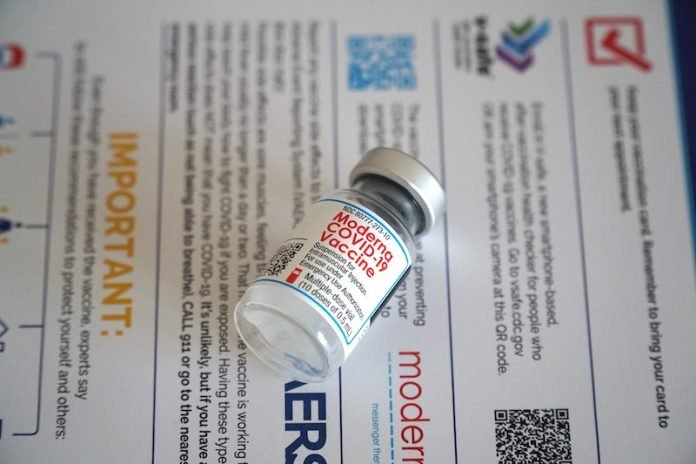
Two of the COVID-19 vaccines currently approved in the United States require two doses, administered three to four weeks apart.
But there are little data indicating how best to minimize new infections and hospitalizations with limited vaccine supply and distribution capacity.
In a new study from York University, researchers found that delaying the second dose could improve the effectiveness of vaccine programs.
The emergence of novel, more contagious SARS-CoV-2 variants has led to a public health debate on whether to vaccinate more individuals with the first dose of available vaccines and delay the second dose or to prioritize completion of the two-dose series based on tested schedules in clinical trials.
In the study, the team built a mathematical model that simulated both COVID-19 transmission and various delayed second dose vaccination schedules.
The model simulated several scenarios, including a range of levels of preexisting immunity in the population and decreased vaccine efficacy of the first dose when followed by a longer interval between doses.
The team found that delaying the second dose for 9-15 weeks after the first dose avoided more hospitalizations, infections, and deaths compared to following the recommended schedules for Moderna and Pfizer-BioNTech vaccines.
They assumed that protection levels of the first dose were stable if the second dose were delayed and that the protection level after delaying the second dose was identical to overall protection after two doses when vaccinating according to schedule.
Further studies are needed to pinpoint the optimal time between doses for each type of vaccine.
According to the researchers, when racing against a burgeoning outbreak, prioritizing vaccine coverage with rapid distribution of the first dose would be critical to mitigating adverse outcomes and allow the healthcare system to also address the non-COVID-19 medical needs of the population.
The study is published in PLOS Biology. One author of the study is Seyed Moghadas.
Copyright © 2021 Knowridge Science Report. All rights reserved.



